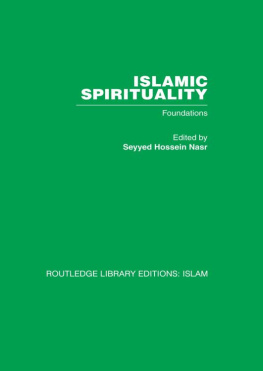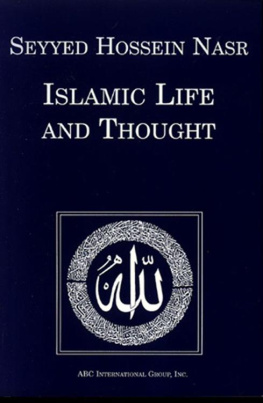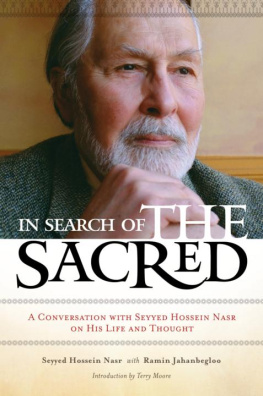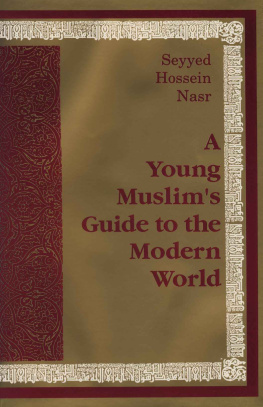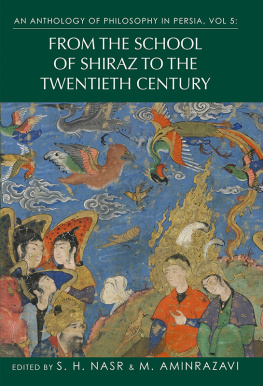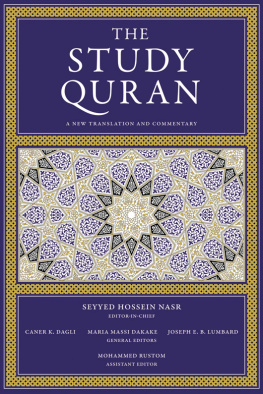Seyyed Vali Reza Nasr - Vanguard of the Islamic Revolution: The Jama|At-I Islami of Pakistan
Here you can read online Seyyed Vali Reza Nasr - Vanguard of the Islamic Revolution: The Jama|At-I Islami of Pakistan full text of the book (entire story) in english for free. Download pdf and epub, get meaning, cover and reviews about this ebook. genre: Politics. Description of the work, (preface) as well as reviews are available. Best literature library LitArk.com created for fans of good reading and offers a wide selection of genres:
Romance novel
Science fiction
Adventure
Detective
Science
History
Home and family
Prose
Art
Politics
Computer
Non-fiction
Religion
Business
Children
Humor
Choose a favorite category and find really read worthwhile books. Enjoy immersion in the world of imagination, feel the emotions of the characters or learn something new for yourself, make an fascinating discovery.

- Book:Vanguard of the Islamic Revolution: The Jama
- Author:
- Genre:
- Rating:4 / 5
- Favourites:Add to favourites
- Your mark:
- 80
- 1
- 2
- 3
- 4
- 5
Vanguard of the Islamic Revolution: The Jama: summary, description and annotation
We offer to read an annotation, description, summary or preface (depends on what the author of the book "Vanguard of the Islamic Revolution: The Jama" wrote himself). If you haven't found the necessary information about the book — write in the comments, we will try to find it.
Vanguard of the Islamic Revolution: The Jama — read online for free the complete book (whole text) full work
Below is the text of the book, divided by pages. System saving the place of the last page read, allows you to conveniently read the book "Vanguard of the Islamic Revolution: The Jama" online for free, without having to search again every time where you left off. Put a bookmark, and you can go to the page where you finished reading at any time.
Font size:
Interval:
Bookmark:
The Jamaat-i Islami of Pakistan
Seyed Vali Reza Nasr
UNIVERSITY OF CALIFORNIA PRESS
Berkeley Los Angeles London
1994 The Regents of the University of California
Epigraph
Theyl rely on proofs and on eloquence; but will also do the work of Truth by the sword and
the shield.
Our religion is our politics, our politics is our religion.
The rise of Islamic revivalism has presented a serious chal enge to conventional wisdom in
the social sciences and as a result has been the object of considerable debate and inquiry.
The resurgence of an atavism that both rejects and defies Western modernization and
preaches submission to the writ of religious law in societies that have already undergone
significant modernization requires a redefinition of the very notion of modernization itself, both as a process and as an intellectual construct. Modernization can no longer be regarded
as a process that automatical y produces secularization, privatization of faith, and the
rejection of old values. Nor can religion any longer be seen merely as a set of traditional rites and beliefs, impervious to change and irrelevant to modernization. The task therefore
becomes one of reconciling anachronistic values and loyalties with time-honored
assumptions about the content, nature, and direction of modernizing change. Changes in the
past decade and a half across the Muslim world have yielded an impressive number of
studies on Islamic revivalism but no consensus, perhaps because these studies have left
some gaps. It is precisely those gaps that this book tries to fill.
For one thing, many studies have limited themselves to theoretical approaches and existing
models of sociopolitical change when it has become ever more apparent that understanding
wil come only from greater attention to individual cases of Islamic revivalism. It is through meticulous inquiry that the distinguishing aspects of the teleology and politics of Islamic
revivalism can be identified; new theories can be formed in light of these empirical findings.
The social sciences have always been inductive, anchored in what Clifford Geertz has cal ed
thick description.
Many studies of Islamic revivalism have concentrated on preconditions and root causes on
the one hand and on the ideological pronouncements of its proponents on the other.
Comparatively little has been written on the development of revivalist movements, how they
operate, and what social, political, and economic conditions shaped their evolution. Concern
with how revivalism came about has diverted attention from the more pertinent question of
where it is heading. As revivalism has become part of politics in Muslim societies, the study of Islamic revivalism must move beyond a discussion of causes to examine development.
The study of Islamic revivalism has until now concentrated primarily on Iran and the Arab
world and has, as a result, been somewhat restricted in its outlook. A comprehensive
theoretical approach wil need to consider revivalist activity elsewhere. Of particular
importance is South Asia, where the structure of sociopolitical thought and practice has been greatly affected by religious revivalism. From the emergence of the tradition of reform and
renewal associated with Shah Waliullah of Delhi in the eighteenth century to the rise of the Faraizi reformists in Bengal and the advent of new initiatives for reassertion of Islamic
values in the form of the Deoband, Aligarh, Ahl-i Hadith, Brailwi, and Nadwi schools of
thought in the nineteenth and twentieth centuries, to the advent of the Khilafat movement
and eventual y the campaign for Pakistan, two centuries of activism have fused religious
loyalties and political identity in South Asia into an integrated worldview. The development of South Asian Islam in modern times therefore provides valuable insights into the origins of
revivalism and the forms its political action has taken.
A comprehensive examination of the history and ideology of the Jamaat-i Islami (the Islamic
party), the self-appointed vanguard of the Islamic revolution, can elucidate the manner in
which religiopolitical leadership, politicization of religion, and sacralization of politics have tied Islamic theology and piety with the passage of Muslim societies into modernity. The
Jamaat is one of the oldest and most influential of the Islamic revivalist movements and the first of its kind to develop an Islamic ideology, a modern revolutionary reading of Islam, and an agenda for social action to realize its vision. It has influenced Islamic revivalism from
Morocco to Malaysia and controlled the expression of revivalist thinking in Southwest Asia
and South Asia since 1941. There are today eight discrete Jamaat-i Islami parties: in
Pakistan, India, Indias Kashmir province, Pakistans Azad Kashmir, Bangladesh, Sri Lanka,
Great Britain, and North America. The partys ideological reach and impact, throughout its
history as wel as across a vast geographical expanse, far exceed the boundaries of any one
political arena or historical period. By mobilizing its resources in India, Pakistan, Saudi
Arabia, and England, the party played a central role in orchestrating the protests against
Salman Rushdies Satanic Verses in England in 19881989, a notable example of its
influence. Thanks to the Jamaat, Muslims in Africa, the Middle East, Asia, and Europe pitted Islam against the West and laid the foundations for the international crisis that ensued.
Central to any effort to understand the Jamaat is an examination of its ideological
foundations, social basis, organizational structure, and politics. We need to discover what
led the Jamaat to embrace revivalism and what promoted and sustained the partys political
activism, charted its development, and determined the nature and scope of its impact on
Pakistans politics. The nature of the states reaction to Islamic revivalism, from confrontation to accommodation to incorporation, is also of direct relevance. This book probes how
Mawdudis vision was articulated and how it shaped the Jamaats political agenda and plan
of action, influenced the development of the Pakistan state, and changed in the face of
political imperatives.
Ever since the advent of the Iranian revolution Western scholarship has been convinced that
revivalism is inherently antistate. This is not necessarily the case. The Jamaat is the first instance of Islamic revivalism that participates in the political process, rather than trying to topple it. Its development tel s much about how Islamic revivalism will interact with
democratic forces across the Muslim world in the coming years. Western scholarship has
also assumed that Islamic revivalism, once unleashed, wil control Muslim political choices.
This again is not supported by the facts at hand. The Jamaats ideology and activism have
been important in Pakistani politics and to revivalism across the Muslim world, but the party has failed to seize power in Pakistan. It can be credited with forming a national alliance that has been advocating the cause of Islam in Pakistan for four decades; it has helped create a
distinctly Islamic voting bloc; it has institutionalized religiopolitical action, and sacralized national political discourse. It has contributed to the Islamization of Pakistan and has helped shape Pakistans history since 1947; it has had a role in the outcome of social movements
and political events and is likely to continue to do so. Stil , it has been unable to capture power. This is significant, because Islamic revivalism is not supposed to suffer from political constrictions of any sort. That the party has not been the principal beneficiary of the
Next pageFont size:
Interval:
Bookmark:
Similar books «Vanguard of the Islamic Revolution: The Jama»
Look at similar books to Vanguard of the Islamic Revolution: The Jama. We have selected literature similar in name and meaning in the hope of providing readers with more options to find new, interesting, not yet read works.
Discussion, reviews of the book Vanguard of the Islamic Revolution: The Jama and just readers' own opinions. Leave your comments, write what you think about the work, its meaning or the main characters. Specify what exactly you liked and what you didn't like, and why you think so.


